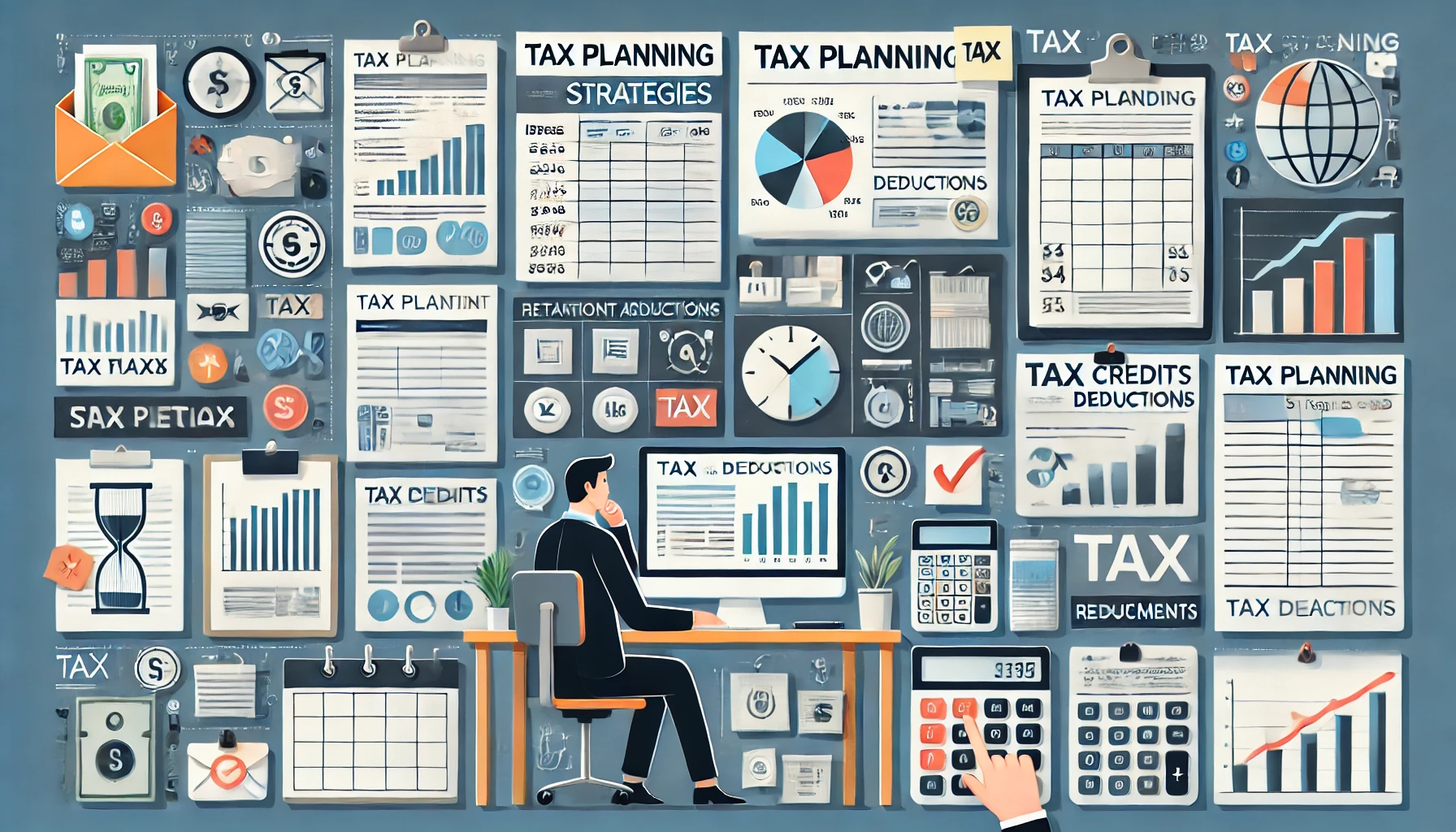Financial management is incomplete without tax planning, which assists individuals and businesses in lowering their tax burden while boosting their take-home pay. Knowing your tax laws inside and out, making wise financial decisions, and staying organized all year are the three pillars of good tax preparation. Here are some crucial tips to help you with your tax preparation.
Learn your tax scenario.
You must first determine your tax bracket before proceeding with tax preparation. Your income is taxed at a rate based on your tax bracket. When you understand your tax bracket, you can make informed decisions about when to earn money, what deductions to take, and which credits to claim.
Reach Your Retirement Goals With Ease.
Contributing to retirement accounts such as 401(k), IRAs, and Roth IRAs makes it easy to reduce your taxable income. Contributions to conventional 401(k)s and IRAs can be deducted from your taxable income, lowering your annual tax liability. Despite not being deductible, Roth IRA contributions grow tax-free, providing significant tax savings when you retire.
Use Tax Credits to Your Advantage.
Tax credits can have a significant impact on your tax liability because they directly reduce it. Education credits, including the American Opportunity Tax Credit and the Lifetime Learning Credit, as well as the Child Tax Credit and Earned Income Tax Credit, are among the most popular tax benefits. Investigate all possible credits to ensure you receive the ones you deserve.
Make use of inferences
Deductions can help you minimize your taxable income and thus your tax liability. State and local taxes, mortgage interest, medical expenses, and charity contributions can all be itemized. If your itemized deductions do not exceed the standard deduction, you can use it to simplify tax preparation.
Profit And Loss Statement
You can reduce your tax burden by carefully planning how to sell your investments and earn capital gains. The capital gains tax rate is lower in the long run, so consider holding investments for more than a year. Another strategy to reduce your taxable income is to use tax-loss harvesting, which includes using capital losses to offset gains.
Keep Track of Company Spending.
If you own a business, you can lower your taxable income by keeping accurate records of all business expenses. Office supplies, travel, equipment, and even working from home are all eligible for deduction as business expenses. Consult with a tax specialist to ensure that you are taking advantage of all available deductions.
Take HSAs into mind.
If you have a health savings account (HSA), you can contribute money to it and watch it grow tax-free as long as you use it for qualified medical expenses. An HSA allows you to save money on healthcare bills while also lowering your taxed income.
Revenue and Expense Timing
You can influence your tax bill by carefully scheduling the receipt of money and the payment of costs. To better manage your taxable income, you can accelerate deductions into current year or postpone money to the next year. Entrepreneurs and self-employed individuals can tremendously profit from this strategy.
College Saving Accounts
Investing in a 529 or any comparable plan allows you to save for future educational expenses while still receiving tax benefits. Although 529 plan payments are not deductible at the federal level, many states offer tax incentives to participants. The increase of earnings is also tax-free, as are withdrawals used for qualified educational expenses.
Funds donated to charity
Donating to NGOs allows you to help those in need while also receiving tax benefits. Make sure your gifts are going to legitimate charity, and keep track of everything you give. Non-cash donations, such as clothing or household items, should be accompanied by a receipt showing the fair market value.
Stay up to date on tax laws
Keeping up with the most recent changes in tax rules is critical for maximizing your tax preparation strategies. To stay current with tax regulations and maximize your tax benefits, you must subscribe to tax newsletters, consult with tax specialists, and use reputable tax software.
Seek Advice from an Expert Tax Preparer.
Because the tax code is complex, it is best to seek assistance with tax preparation from a tax professional. To optimize your tax benefits, consult a tax specialist or certified public accountant (CPA) for tailored strategies based on your financial situation.
Effective tax planning can help you reduce your tax liabilities and maximize your financial savings. You may create a good tax strategy that supports your financial goals by determining your tax bracket, saving as much as feasible for retirement, taking advantage of deductions and credits, and staying up to date on tax legislation. Proactive tax planning can provide financial rewards and peace of mind to both individuals and business owners.
Tags: tax planning, taxes